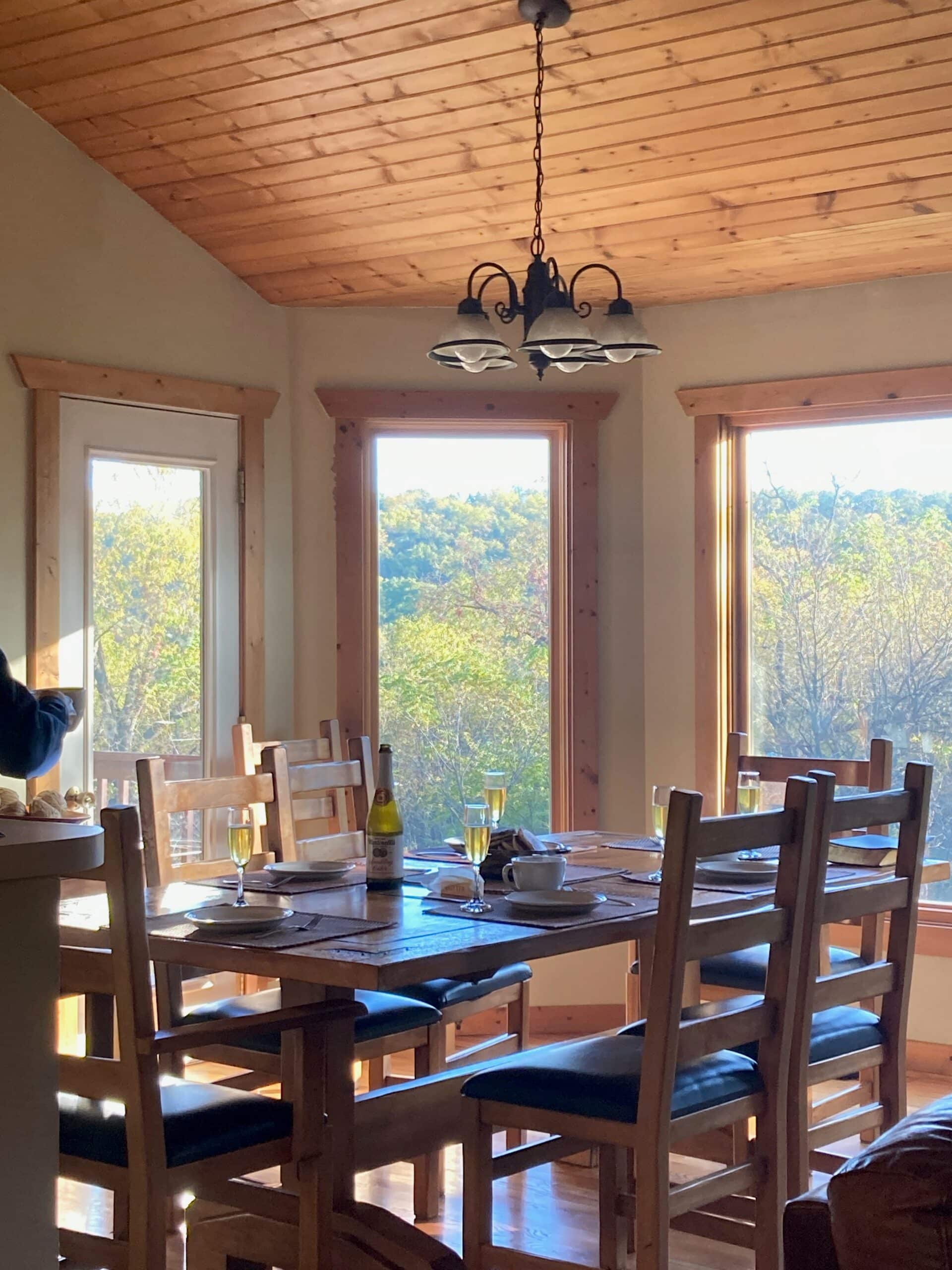Let Thanksgiving Strengthen Your Prayers
by Nick Conner
Last month my family traveled from the JV girls volleyball game to a cottage nestled in the rolling hills outside Galena for what has become a treasured family tradition – a weekend away over Clapham School’s fall break. For years we’ve been making this trip, beginning when our oldest was in Class One and our youngest was yet to be born. Now all four of our children are at Clapham School and we have accumulated six albums of fall break memories.
While each vacation home has been special, everyone agreed that this year’s
rental house was the best one yet – largely due to an old-school arcade game in the basement and a hot tub on the back deck. While I was thankful for both these amenities, the aspect of the house I enjoyed most was the second-story picture window that looked out upon a grassy field framed by a forested creek.
It was by this window that I began each morning, enjoying a cup of coffee and reading God’s Word, while the view before me transformed from a sleepy meadow, clothed in fog, to a lively display of fall colors and wildlife, bathed in the new morning sunlight. It was as I took in one of these transformations that I happened to be reading Psalm 9, which begins with this verse:
I will give thanks to the LORD with my whole heart;
I will recount all of your wonderful deeds.
These words resonated with my soul as I marveled at the wonders of God’s creation outside my window amid my vacation retreat. But as I kept reading, what I discovered was that the seat from which David penned this Psalm was quite different from the one in which I read it.
Reading Psalm 9, as well as Psalm 10 (many commentators believe they are meant to be read together), it becomes evident that David was not writing from a place of rest and beauty but one of affliction and hardship. Thus, we hear him cry out, “Be gracious to me, O LORD! See my affliction from those who hate me . . .” (9:13) and we hear him ask, “Why, O Lord, do you stand far away? Why do you hide yourself in times of trouble?” (10:1). Evidently, this is a Psalm born out of loneliness and oppression, not comfortable reflection.
Given this context, how do we make sense of the first verse? Why begin with thankfulness and praise? How does that fit in with what is to follow?
Reading Psalms 9 & 10 in their entirety, what I believe we see is that David’s robust thankfulness at the beginning of this song, and in this season of affliction, serves to embolden his prayers at its end. David’s whole-hearted thankfulness over God’s past faithfulness seems to be what strengthens him to pray the audaciously confident prayer for the Lord to “Arise!” and fight for his afflicted servant (9:19 & 10:12). A request David fully believes to be answered (see 10:17-18) because he has taken the time to recount God’s wonderful deeds in the past.
As we approach the Thanksgiving holiday, I hope that we too might learn the power that thankfulness provides to our prayers, especially in seasons of hardship and affliction. May we take time to recount God’s wonderful deeds in the past and may they fuel our faith-filled requests, trusting that the God who worked wonders for His people in the past will work them again for us in the present.
Nick Conner is a Clapham father. He and his wife have three children at Clapham and they attend Grace Church of DuPage, where Nick serves as the Associate Pastor.
{{cta(‘c017bf89-fbbc-46ac-b34b-d4966bf2a420′,’justifycenter’)}}



